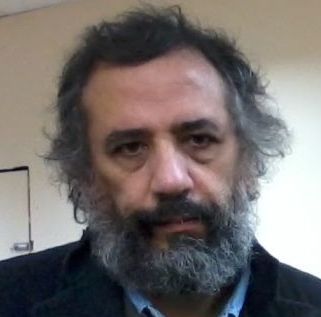

 By VennerRoad, 28th Apr 2016
By VennerRoad, 28th Apr 2016
Musings on the recent Jian Ghomeshi trial in Canada.

Diana Davison
If you haven’t heard of Diana Davison, she is a stunningly attractive petite redhead from Canada. That though is the least of her charms, because she is also both a formidable intellect and a tireless crusader against intellectual dishonesty as well as a defender of freedom. Recently she fell foul of Canada’s thought police; although she wasn’t arrested, one of her videos was pulled from YouTube. To understand why, we need to visit the Ghomeshi case.
If you are not domiciled in Canada, chances are you will not have heard of radio presenter Jian Ghomeshi. From 2010, Ghomeshi was plagued by allegations of sexual misconduct. Initially, he was accused by a co-worker of sexual harassment, which she said began 3 years earlier. Nowadays, the phrase sexual harassment can mean almost anything from asking a woman out on a date to complimenting her on her appearance to things most rational people would regard as sexual harassment, so from this mere allegation it is not clear if Ghomeshi did anything reprehensible.
Things would soon become much worse though when it was brought to his attention that the Toronto Star newspaper was looking into allegations by a former girlfriend that he had engaged in something called non-consensual rough sex. As non-consensual sex is by definition rape, this was a whole new ball game. No criminal charges were filed, but Ghomeshi took a leave of absence, in effect he was fired.
Then things got much worse, he was fired for real, and other allegations were made against him. The most serious were made by three women: a minor actress named Lucy DeCoutere, and two others who remained anonymous, although one – Linda Redgrave – has since waived her anonymity, while the third has now been outed by Diana Davison.
The allegations against Ghomeshi date back to 2003 and 2002; like the UK, Canada has no statutes of limitations for alleged offences of this nature. This is incredibly dangerous for innocent men and on occasion women because it allows accusers, often self-styled survivors, to come forward years and decades later with allegations that can for the most part be neither proved nor disproved. With celebrities and others in the public eye, one false allegation will often lead to more, a well-known psychological phenomenon known as the bandwagon effect. False accusers come forward for all manner of reasons; probably the stellar example of this is the recent and ongoing charade in the United States concerning former comedian Bill Cosby who has now been accused of sexual misconduct by a staggering 58 women, everything from groping to aggravated serial rape.
The Cosby case is most instructive because a number of his accusers have been shown to be either away with the fairies or simply lying, but his detractors are still endorsing them, and even the mainstream media has not branded them the shameless liars they are.
When multiple accusers come forward and the case goes to trial, the prosecution will present them as showing a pattern of depravity, using dishonest arguments such as none of these women know each other, yet they are all telling very similar tales, so the accused must be guilty. Juries are not always taken in by such overt dishonesty, but it is very difficult for most jurors – overwhelmingly lay people – to get past it. Ghomeshi did not face a jury though, but a judge. All the same, three women making broadly similar allegations looks compelling; Ghomeshi would surely have been convicted and sentenced to many years in prison, but for one thing: he had kept his e-mails and correspondence with all of them, and his expensive but stellar advocate Marie Henein demolished their testimony.
Legal judgments are noted for their temperate language, even so, in his 142 paragraph dismissal of March 24, 2016, Justice William B. Horkins excoriated all three of them. To take just one example, more than six months after one of the non-victims was allegedly assaulted by Ghomeshi, she e-mailed him: “Still want to have that drink sometime?” As the judge pointed out, these are not the words of someone endeavouring to keep her distance, as she had claimed.
At least two of the accusers had also plotted openly on social media to destroy Ghomeshi. Why would they do this if he hadn’t assaulted them? A rational motive is not always needed for such blatant perjury, but here there was one, these women wanted to sleep with Ghomeshi, and he didn’t want to sleep with them.
After the acquittal, one might have expected a certain amount of indignation to be generated in the media, with perhaps the suggestion that these women should be indicted for perjury. There was indeed indignation, but it was of the most righteous kind, and was directed at the judge – for failing to understand that survivors were often so traumatised they would sometimes do seemingly irrational things like continuing to pursue their violator, even in this case when he had expressed no desire to have any further meaningful contact with them. Indignation was directed at Ghomeshi, who could only be guilty in spite of the verdict – why would 3 survivors lie? And most outrageously at Marie Henein for betraying the sisterhood.
Incredibly, the Toronto Star published an article Jian Ghomeshi case shines spotlight on ‘post-incident contact’ in which it gave space to feminist academic Elizabeth Sheehy who said it was important for judges to understand that there was no script in cases of this kind. In other words, any behaviour by an alleged victim is consistent with sexual or non-sexual assault after the incident. And by the same token, any behaviour is consistent with liars and fantasists, as these three were and are.
Asking Sheehy to comment on this case is a bit like asking Karla Homolka to comment on family values. Diana Davison has her measure too, and has torn her book Defending Battered Women On Trial to shreds.
In her recent video, Diana outed the third Ghomeshi accuser, who in spite of her gratuitous lying under oath is entitled to lifelong anonymity. While cases involving children are rightly shrouded in anonymity, there is absolutely no reason in this day and age for a reasonably intelligent, educated woman to be afforded anonymity, much less to testify from behind a screen or in some cases to have her cross-examination pre-recorded. All these measures are designed to increase the conviction rate in sexual assault cases rather than to convict the guilty and acquit the innocent. If any lessons are to be learned from the Ghomeshi trial, let them be the right ones, namely that women are just as capable of lying about the men they accuse as are the men themselves lying about their accusers.
To Wikinut Articles Page